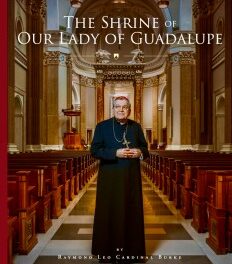We support our Publishers and Content Creators. You can view this story on their website by CLICKING HERE.
“Memoriae Tuae”
Martis nec gladius, belli nec ignis impiger
Vivum momentum unquam memoriae tuae consumet
Nor Mars his sword nor war’s quick fire shall burn
The living record of your memory*
Patrick Doyle wrote “Memoriae Tuae” as part of his score for the animated film, Sgt. Stubby: An American Hero, a 2018 computer-animated adventure film centering on the real-life Sergeant Stubby, a stray Bull Terrier who became a hero of World War I. Sergeant Stubby (1916–1926) was the official mascot of the 102nd Infantry Regiment (United States) and was assigned to the 26th (Yankee) Division in World War I. He served for 18 months and participated in 17 battles on the Western Front. He saved his regiment from surprise mustard gas attacks, found and comforted the wounded, and allegedly once caught a German soldier by the seat of his pants, holding him there until American soldiers found him. His actions were well-documented in contemporary American newspapers. Stubby has been called the most decorated war dog of WWI, and the only dog to be nominated for rank and then promoted to sergeant through combat. Stubby’s remains are in the Smithsonian Institution. —from Wikipedia
*Original text from “Sonnet 55” by William Shakespeare, Latin translation by Aidan Grounds and Alexandra Hamburger (from Fun Academy)
The Imaginative Conservative applies the principle of appreciation to the discussion of culture and politics—we approach dialogue with magnanimity rather than with mere civility. Will you help us remain a refreshing oasis in the increasingly contentious arena of modern discourse? Please consider donating now.
We hope you will join us in The Imaginative Conservative community. The Imaginative Conservative is an on-line journal for those who seek the True, the Good and the Beautiful. We address culture, liberal learning, politics, political economy, literature, the arts and the American Republic in the tradition of Russell Kirk, T.S. Eliot, Edmund Burke, Irving Babbitt, Wilhelm Roepke, Robert Nisbet, Richard Weaver, M.E. Bradford, Eric Voegelin, Christopher Dawson, Paul Elmer More and other leaders of Imaginative Conservatism. Some conservatives may look at the state of Western culture and the American Republic and see a huge dark cloud which seems ready to unleash a storm that may well wash away what we most treasure of our inherited ways. Others focus on the silver lining which may be found in the next generation of traditional conservatives who have been inspired by Dr. Kirk and his like. We hope that The Imaginative Conservative answers T.S. Eliot’s call to “redeem the time, redeem the dream.” The Imaginative Conservative offers to our families, our communities, and the Republic, a conservatism of hope, grace, charity, gratitude and prayer.
This essay was first published here in June 2020.
The featured image is courtesy of Pixabay. The image of Sgt. Stubby is in the public domain, courtesy of Wikimedia Commons.
Share This Story, Choose Your Platform!
Go to Top

 Conservative
Conservative  Search
Search Trending
Trending Current News
Current News 







